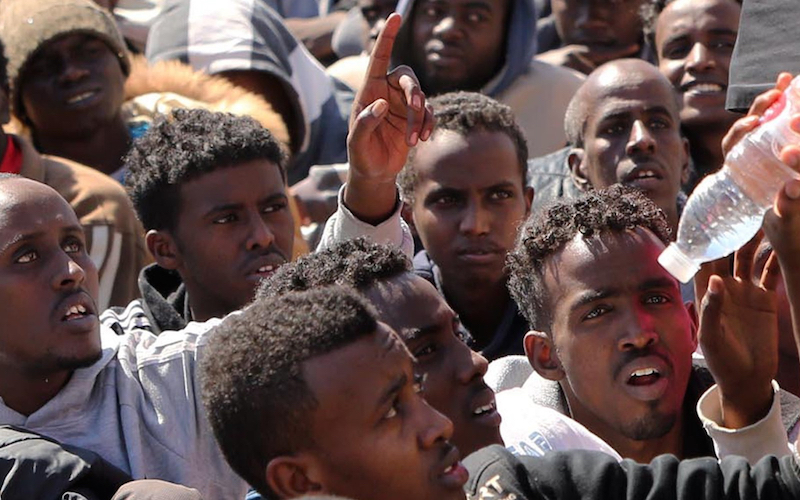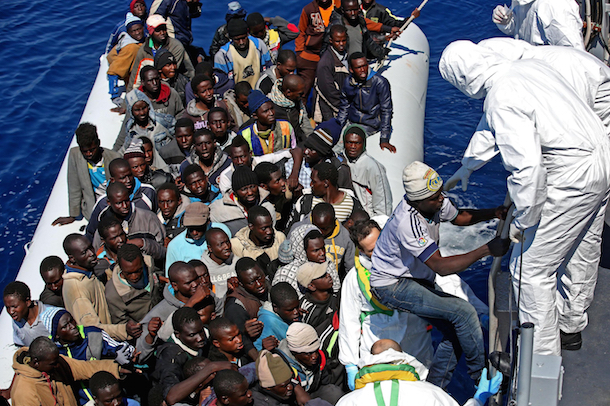
Collusion and Control: Europe Pays Africa to Keep Refugees
Things are getting their populist worst in Europe, with proposals of payment to various regimes to control the flow of refugees assuming grand proportions. Various African governments (Sudan, Eritrea and Ethiopia) have been offered in the order of 1.8 billion Euros to accomplish such dubious ends. “It could almost be satire,” writes Ahmed H. Adam in The Guardian.
The Malta Migration Summit in Valletta saw a range of suggestions that betrayed the lengths of desperation European states are willing to go. Rather than seeing a comprehensive set of plans to deal with migrant flows at the source, in transit, and at points of destination, we have a set of primitive proposals centred on aid and bolstering repressive regimes. The end result is the same: monetising a humanitarian problem with such proposals as an Emergency Trust Fund. Member states have been asked, in turn, to make matching contributions.
The governments slated to receive money have, to a large extent, been vigorous contributors to the very refugee crisis they are now being told to stem. The result, rather perversely, is a form of refugee aid in reverse.
The Sudanese case is particularly striking, with the High Commission for Refugees noting that some 400,000 people have been internally displaced in Darfur, with a further 6.9 million people in need of humanitarian assistance. The number of internal displacements are set to increase by the end of this year.
Another proposed recipient state, Eritrea, has similarly been the catalyst for large numbers of refugees heading to Europe. Eritreans, in 2014, constituted the second largest migrant group, after Syrians, reaching 34,320. As Maimuna Mohamud and Cindy Horst note in African Arguments, “These figures give an indication of the ongoing and prolonged political repression in Eritrea and tragically, these asylum seekers often face further insecure conditions in Libya – a hub for migrants en route to the EU, and a country on the brink of state collapse.”
Out of this has grown a market in smuggling which is globalising by the week. It implicates entire structures of government officialdom, be it those in the intelligence services willing to make some ruddy cash, or those offering a poisonously dangerous hand in shifting people out.
The glaring consequence of having such Trust Fund money allocated will not address the root causes of population movements (the regimes, after all, will not change). Instead, they will provide an encouragement to deport undesirables within the state. Countries of origin effectively become countries of deportation, egged on by monetary incentives.

The Valletta Migration summit proposals effectively continue elements of the Khartoum Process, otherwise known as the EU-Horn of Africa Migration Route Initiative, which aims to combat migrant trafficking and smuggling between the Horn of Africa and Europe. All well and good, till one considers the usual suspects in refugee production.
Iverna McGowan was quick to note the implications of the proposals. “With the EU seemingly intent on enlisting African nations as proxy gatekeepers, the Valletta summit is likely to result in a one-sided border control contract dressed up as a cooperation agreement.”
There are other problems with this proxy enlistment. The underlying issue here, again rooted in a monetary conceptualisation of the problem, is that the refugees fleeing for Europe from certain areas of conflict are treated as the economic sort. This skewed reading invariably invites further hostility in European quarters while denigrating the actual humanitarian character of those fleeing brutal regimes and states of fear. Forking out cash to those very regimes neither encourages protection, nor fosters stability.
The line of reasoning there is that the African refugee dilemma is being treated differently from that of Syria and Iraq. Those from Iraq and Syria are deemed humanitarian refugees; those from Africa, economic. The assessment is flawed at its core, given the conflicts afflicting Somalia, Eritrea, some parts of Nigeria and the Central African Republic.
The last, though by no means exhaustive point in these sham proposals, is the lack of monitoring and transparency that this will entail. The EU has pressed for guarantees that those returning to origin states such as Eritrea will have their safety assured, and that no torture will take place.
This stunningly naïve approach avoids the very reason why such individuals flee in the first place, effectively making a gentleman’s agreement out of regime cruelty. The rule against non-refoulement enshrined in the Refugee Convention can never be reduced to such Queensberry rules of decency.
If ever there was incitement to continue a crisis rather than curb it, this is it. Such recipient governments have every interest in perpetuating, not stemming, the problem. Scores can be settled while money is funnelled into the ether. While Australian government officials pay the very people smugglers they supposedly loathe to relocate to Indonesia, various regimes can be guaranteed a sum for supposedly quelling problems largely of their own making.
The Valletta summit would suggest an acceptance of the most rudimentary reading of the global refugee problem: Throw money at it, supposedly relocate or displace the problem, and hope it vanishes before the local populace gets testy.

